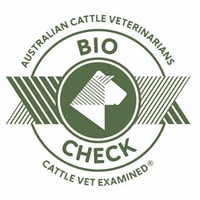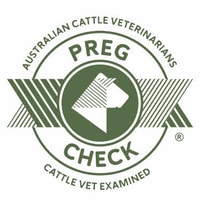
Around springtime, we often see an increase in itchy skin (dermatitis) and ear infections in dogs and cats.
How to spot itchy skin
You should know almost right away if your cat or dog has dermatitis. Here are a few of the common signs:
- Constant scratching, licking, or chewing at the skin
- Flaky, scaly, or greasy skin
- Unusual and excessive hair loss in isolated or large areas
- Inflamed, swollen, broken, or bleeding areas of skin (usually caused by scratching, chewing, licking)
- Hives or red bumps or rashes
- Unpleasant smelling skin (especially in dogs)
Areas most commonly affected in both cats and dogs include the ears, ankles, underarms, groin and lower abdomen, around the eyes, and the muzzle region of their face.
What causes itchy skin?
There can be many causes of dermatitis in dogs and cats. Some of the more common causes include:
- Allergies (caused by dust mites, mould spores, pollen, grasses, plant sap, household chemicals, etc.)
- Parasites like fleas, ticks, and mites
- Generally dry skin
- Skin infections (like eczema, ringworm fungus, yeast, and other bacterial infections)
- Foreign objects (i.e., a grass seed, thorn, splinter, or other foreign matter stuck in your pet’s skin)
- Boredom or anxiety (chewing and licking the skin due to boredom can upset the skin’s natural balance and lead to greater irritations)
- Wet or damp fur for prolonged periods of time
- Poor nutrition
- Hormonal imbalances
Most of these conditions have very simple, effective treatments, including dietary changes, parasite control treatments (topical and ingested), pet-safe moisturisers, and grooming.
Does your cat or dog have an ear infection?
Look out for these common ear infection symptoms:
- Constant or unusual shaking or tilting of the head
- Constant or unusual scratching or pawing of the ears
- Swelling or red skin around or inside the ears
- Unpleasant smelling ears
- Brown, yellow, black, or green discharge in or around the ears
There are many different causes of ear infections in pets:
- Heat
- Foreign objects (dirt, grass seeds, etc.)
- Trapped fluid (water from swimming or playing)
- Ear mites
- Excessive wear wax
- Allergies
Some breeds of dogs with floppy ears are also very prone to ear infections. We recommend regular ear cleaning to prevent infections; speak to us and learn how to do this safely and comfortably for your pet.
If you are worried your pet has an ear infection or dermatitis, please book an appointment online, or give us a call on 07 4693 2233 so we can diagnose the problem and recommend a quick and efficient treatment.
RELATED ARTICLES
Hot-spots
Hot-spots are a common problem amongst dogs, and some breeds like golden retrievers, labradors, and rottweilers may be more susceptible to these than others. What is a hot spot? A hot-spot can otherwise be known as a ‘moist skin rash,’ acute moist dermatitis, or...
Christmas & New Year’s Hazards
The silly season is an exciting time of year, with Christmas and New Year’s Eve celebrations giving us plenty of reasons to let loose and celebrate. With an increase of visitors, noises, tasty treats, shiny new toys, and interesting smells, this time of year can be...
Barbecue & Picnic Hazards
With the sun shining and beautiful warm weather upon us – who can resist a picnic or barbecue with friends!? It is a wonderful opportunity to spend time outdoors and the perfect chance for your pet to come along for some quality time together. If you are taking your...
Pinkeye
Pinkeye, also known as blight and infectious bovine keratoconjunctivitis. Pinkeye is caused by a number of organisms, and creates weeping of the eye initially, followed by a pink raised lesion in the middle of the eye, before a white accumulation in the eye asppears....
RELATED
ARTICLES

Hot-spots
Hot-spots are a common problem amongst dogs, and some breeds like golden retrievers, labradors, and rottweilers may be more susceptible to these than others. What is a hot spot? A hot-spot can otherwise be known as a ‘moist skin rash,’ acute moist dermatitis, or...

Christmas & New Year’s Hazards
The silly season is an exciting time of year, with Christmas and New Year’s Eve celebrations giving us plenty of reasons to let loose and celebrate. With an increase of visitors, noises, tasty treats, shiny new toys, and interesting smells, this time of year can be...

Barbecue & Picnic Hazards
With the sun shining and beautiful warm weather upon us – who can resist a picnic or barbecue with friends!? It is a wonderful opportunity to spend time outdoors and the perfect chance for your pet to come along for some quality time together. If you are taking your...

Pinkeye
Pinkeye, also known as blight and infectious bovine keratoconjunctivitis. Pinkeye is caused by a number of organisms, and creates weeping of the eye initially, followed by a pink raised lesion in the middle of the eye, before a white accumulation in the eye asppears....
Call Us Today To Discuss Your Animal Needs
Business Hours Phone: 07 4693 2233












